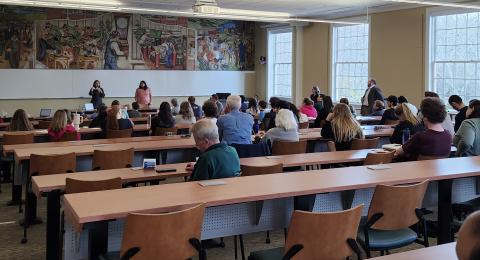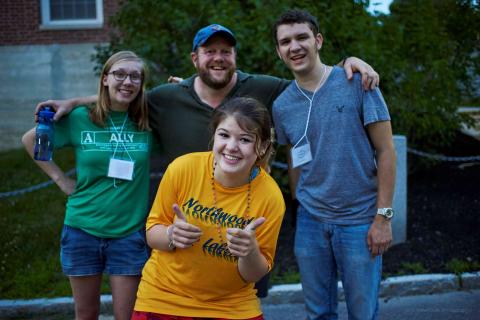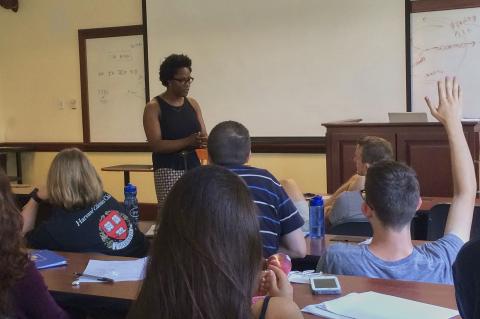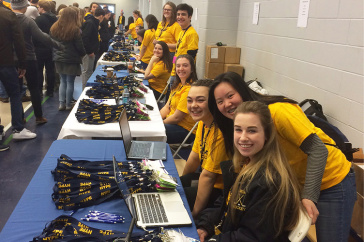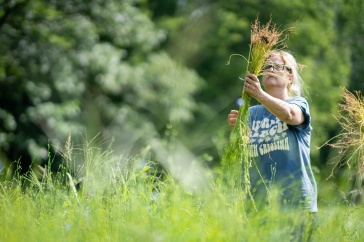Responsible Governance and Sustainable Citizenship Project
The Responsible Governance and Sustainable Citizenship Project (RGSCP) is an initiative at the University of New Hampshire that promotes ethics, citizenship, principled leadership, responsible governance and the creation of sustainable institutions. It provides opportunities for students and citizens of New Hampshire to learn how to be involved citizens and members of ethical, responsible, and productive communities, businesses and organizations by bringing the past into dialogue with the present in order to inform the future.
RGSCP Coming Events
Future Leaders Institute
Sunday, July 26-Sunday, August 2, 2026
Founded in 2014, The Future Leaders Institute offers a residential philosophy camp at UNH for thoughtful high-school students to discuss big ideas in a collaborative environment while making friends and enjoying summer in coastal New Hampshire.
The theme for 2026 is Governing AI. We will discuss how we should govern AI, and how AI governs us. You can find full camp details and information on how to apply on the Future Leaders Institute page. Applications open on January 15, 2026!
Frank D. McCann International Seminar
Tuesday, April 14, 2026 in MUB Theater 2 from 12:40 - 2 pm
Nancy Ries, Professor of Anthropology, Emerita, Colgate University: "Perestroika, the Rise of Putin, and the Worldwide Impacts of Russia's Mafia State"
Dr. Ries is a Russianist, who has spent extensive time in Russia and studying the rise of Putin and its consequences. She studied the role of the Russian Mafiya and how it became part of the Russian government strategy to disseminate terror. She more recently developed the concept of “thugocracy,” based on her ethnographic work in Russia, which explains thugocratic regimes and how they target the rule of law and civil society. Her work is informed by deep ethnographic fieldwork and extensive reading of Russian-language publications.
Constitution Day 2025
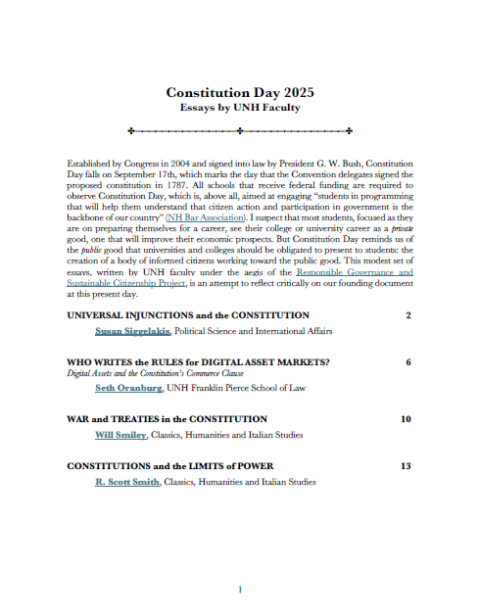
RGSCP was excited to help UNH acknowledge and celebrate Constitution Day on September 17, 2025. You can learn more about the intricacies of the U.S. Constitution by reading our set of brief essays written by members of the RGSCP Civics and Citizenship Working Group.
